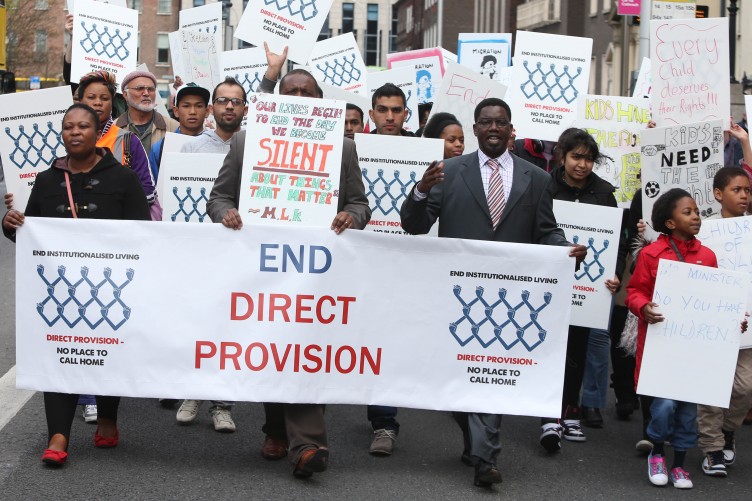Gyunghee Park reports on the continuing failure of the Government to deal with the those suffering in Direct Provision.
Last year asylum seekers in Cork, Waterford and Limerick protested the inhumane conditions of the direct provision system. In an unprecedented protest, residents blocked staff from entering facilities and invited the public to witness first-hand the conditions of overcrowding they endure. For a period the toll taken on asylum seekers and their children’s physical and mental health from long waiting periods, denial of work and poor diet was covered in the national media.
In response, the Government put together the Working Group on the Protection Process in October 2014, billed as a concerted effort between Non-Governmental Organisations and experts to examine what improvements could be made to the structure of direct provision. However, eight months after its establishment the Working Group has yet to produce even minimal recommendations. This stagnation is at least partly due to the internal discord and the instability in the Working Group’s membership. Chief Executive of the Irish Refugee Council (IRC), Sue Conlan, resigned in March and the IRC’s Reuben Hambakachere left the group in April, both citing resistance from the Department of Justice to the group’s recommendations.
Conlon wrote in her resignation letter that, “Any attempt within the Working Group to propose change which involves legislation, such as putting accommodation. and support in a Bill or changing legislation to extend the role of the Ombudsman or Children’s Ombudsman has been resisted by the Department of Justice.”
Not a single current asylum seeker has been included in the negotiations
Another important critique of the Working Group has been the lack of voices from those living in direct provision as not a single current asylum seeker has been included in the negotiations. Nevertheless, the Working Group continues to toil away on a report to serve as a basis for future decisions, while very little has changed for the over 4,300 residents – nearly half of which are children – of the system.
The need for this report is unclear. The problems of the direct provision system have been highlighted extensively for many years in media coverage and in reports and recommendations from organisations including the UN, Amnesty International, and various Irish NGOs. Criticisms of the system have been there from the beginning; concerns raised in early stages persist and in many ways the system has deteriorated further.
The problem at the heart of Ireland’s current legal framework on asylum policy is the underlying assumption that migrants are a ‘problem’. Ronit Lentin has argued that the Irish State has favoured labour migrants and been the “leading actor in creating anti-immigrant sentiment in Ireland”.
When asylum seeker applications peaked at the turn of this century, the Government moved to narrow constitutional definitions of Irishness. First came a decision by the Supreme Court to exclude non-national parents of Irish citizens from being allowed to stay based on their children’s status. Then, in the 2004 referendum, nearly 80% of voters decided to remove birthright citizenship entirely, and there are now children who have been living in this country all their lives, but are excluded from a wide array of national services and rights.
In 2014, Ireland granted protected status to 495 asylum seekers, 0.2% of the total taken in by the European Union, and, overall, it accepts well below the EU average. The Working Group may improve the system around its edges by making it look less inhumane, in part by encouraging faster deportations through a single application process. However, knowledge of the human rights abuses within the system are widespread enough to justify the abolition of direct provision once and for all.





